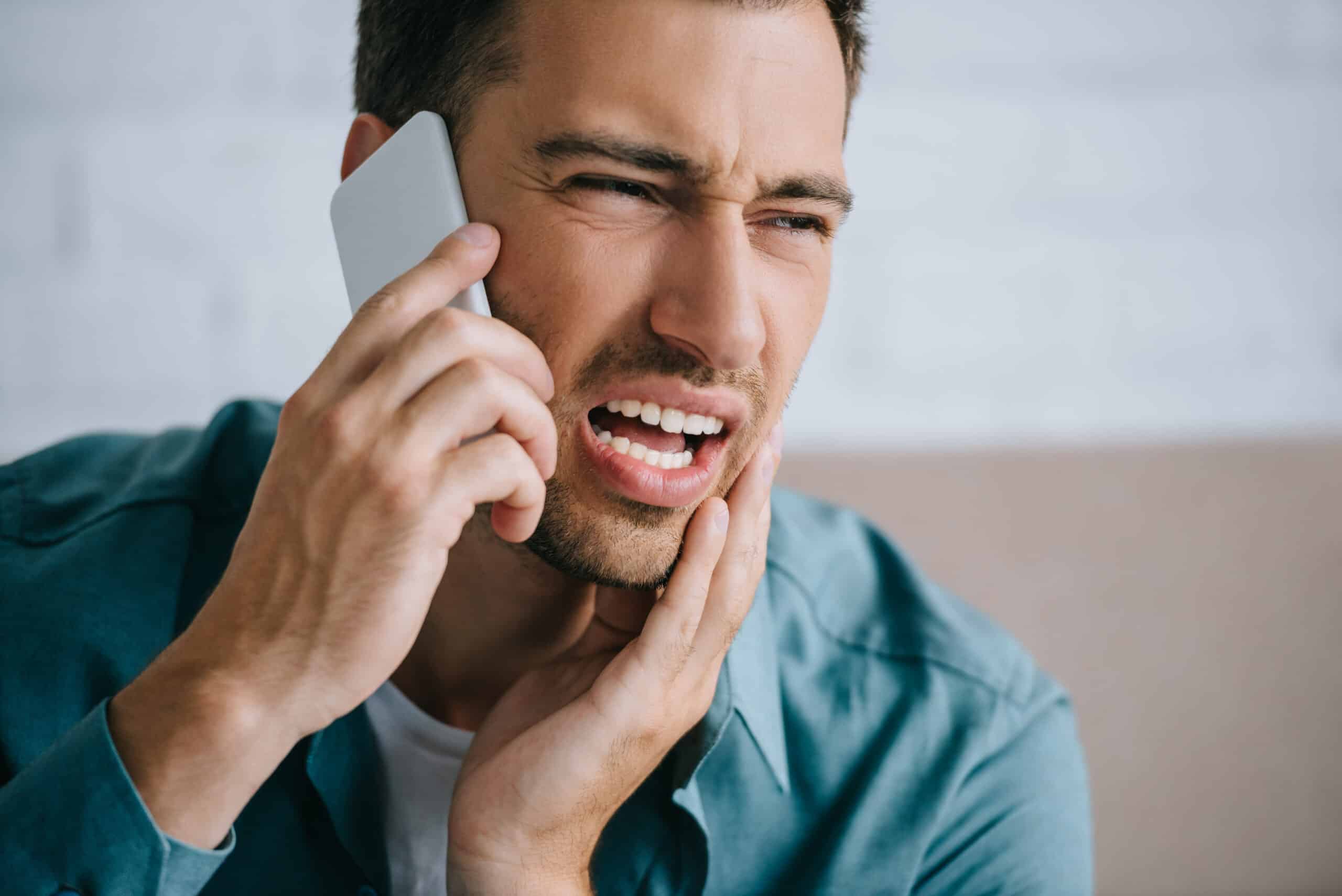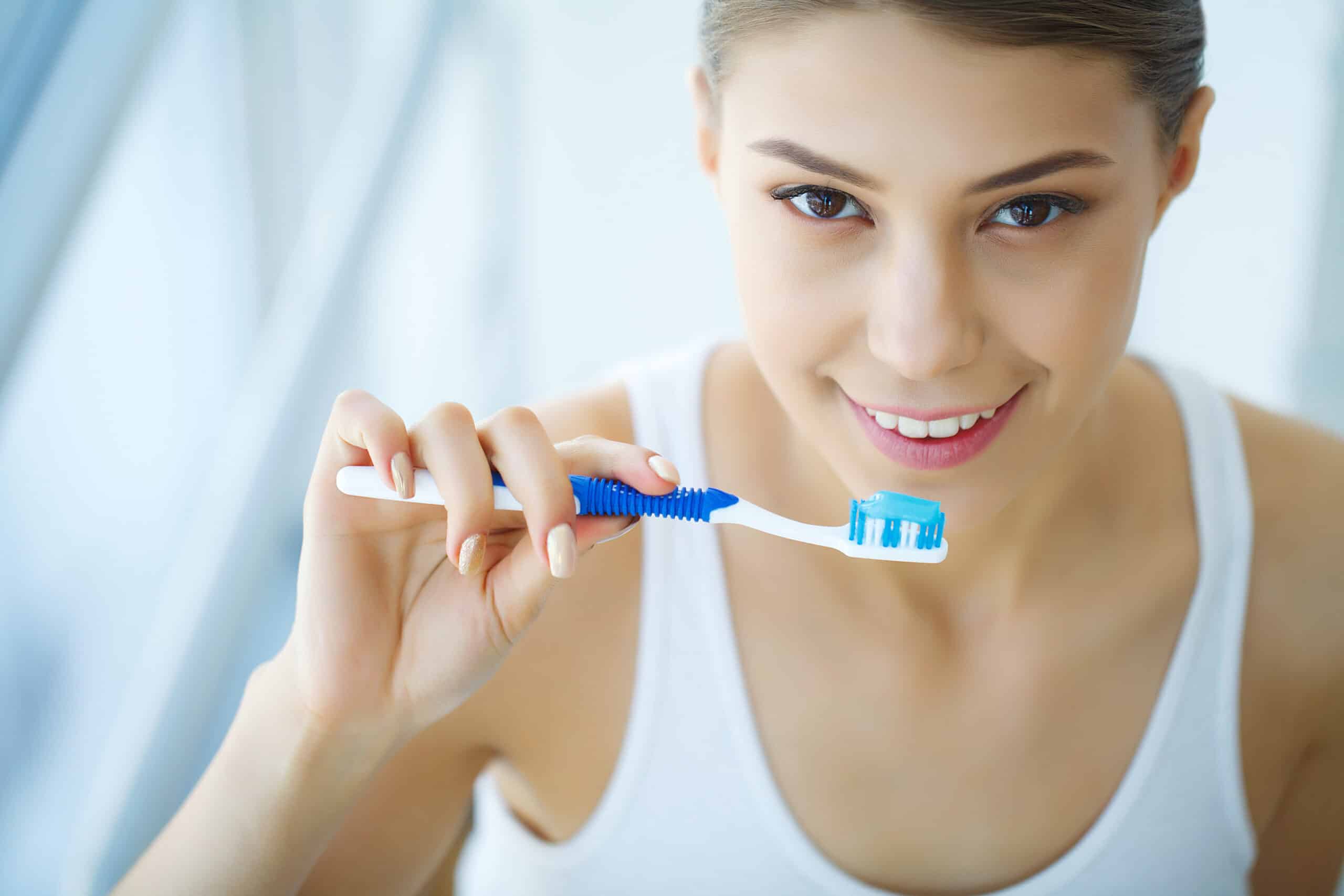- There are many signs of sleep apnea to watch out for
- Untreated sleep apnea can lead to serious health issues
- Your dentist can help detect sleep apnea early
- Speak to your doctor if you think you suffer from sleep apnea
Have you ever found yourself sleeping peacefully, only to be awakened by a swift elbow from your partner, complaining that you’re snoring too loudly?
Your first defense might be to sleepily reply, “I don’t snore!”
However, chances are that you do snore, and knowing about it sooner can be a lifesaver.
Loud snoring is more than a mere annoyance to those around us. It can also be symptomatic of a potentially dangerous condition known as sleep apnea, which can lead to serious heart problems over time.
What is sleep apnea?
Sleep apnea is a disorder that causes your breathing to repeatedly start and stop while sleeping, in some cases hundreds of times over the course of a single night.
There are two main types of sleep apnea:
- Obstructive sleep apnea: a common form that is caused by the throat muscles relaxing, an overly large tongue, or a small jaw, all of which can obstruct your airway and inhibit breathing
- Central sleep apnea: a less common form that occurs when the brain doesn’t send the proper signals to the muscles that control breathing
In rare cases, a patient might have both types of sleep apnea, a condition known as complex sleep apnea syndrome.
The starting and stopping of breathing puts excessive strain on the heart, which can lead to a higher risk of high blood pressure, stroke, heart failure, and heart attack.
Sleep apnea can also contribute to depression, obesity, diabetes, headaches, and more. The link between sleep apnea and so many other health risks makes recognizing the signs crucial so you can seek medical treatment.
Common signs of sleep apnea
Loud snoring is a classic symptom of sleep apnea, or rather, someone else complaining that you’re snoring!
Snoring can be difficult to self-diagnose, since you’re asleep while you’re doing it, but there are other telltale signs that might indicate that you’re suffering from sleep apnea, such as:
- Waking up from sleep feeling like you’re gasping or choking
- Restless, inconsistent sleep
- Waking up with a dry or sore throat
- Daytime sleepiness and irritability
- Decreased libido
- Trouble concentrating at work, while driving, in conversation, or during other activities that require your full attention
Even if you have some of these signs, you still might not be aware that sleep apnea is the cause. Fortunately, your dentist is able to spot the signs of sleep apnea, and not only point you in the direction of getting help, but also treat the effects that this condition can have on your oral health.
How your dentist can detect sleep apnea
During a routine dental appointment, your dentist might surprise you with a question about your sleep.
Although connection between your teeth and your sleep might seem unclear at first, the truth is that dentists are often among the earliest diagnosticians of sleep disorders.
This is because your dentist inspects your mouth to detect oral health issues, including worn tooth surfaces that result from a condition known as bruxism.
Bruxism refers to the action of grinding, gnashing, or clenching your teeth during the day, or grinding and clenching while you’re asleep, leading to worn-down teeth. According to sleepfoundation.org, nearly one in four people who suffer from sleep apnea grind their teeth at night, so those worn down teeth might signal a larger issue.
Also, grinding and clenching your teeth can lead to more serious conditions such inflamed and receding gums, and bacterial growth that can lead to cavities, gingivitis, periodontal disease, and even tooth loss.
Your dentist will also inspect your tongue for scalloped edges, and redness in your throat from snoring, both of which are also signs of sleep apnea.
Fortunately, your dentist can help prevent further damage to your oral health that comes as a result of sleep apnea.
How your dentist can help treat oral sleep apnea symptoms
If your dentist believes you might have sleep apnea, they’ll suggest a visit to your family doctor to assess your symptoms, and determine whether you should have a sleep study to accurately diagnose your condition.
Although your dentist can only refer you for treatment of the disorder itself, they can help treat the negative effects that sleep apnea has had on your oral health.
In the case of periodontal disease, depending on how advanced the condition is, our in-house periodontist can take a number of approaches to solve the issue:
- Nonsurgical treatments: The first steps to solving periodontal disease are scaling and root planing. A local anesthetic can be used to prevent any discomfort during these procedures.
- Scaling involves scraping and removing plaque and tartar from your teeth.
- Root planing refers to the smoothing away of the roughness on the roots to prevent bacteria from growing again.
After a few weeks, your dentist will assess whether surgical treatment is needed to help stop the progression of your periodontal disease.
- Surgical treatments: We offer several safe, effective surgical procedures to help reverse periodontal disease:
- Flap surgery: This procedure, also known as pocket reduction surgery, involves folding back the gum tissue to remove the infectious bacteria from below the gum line, and smooth are damaged bone so the gum can reattach.
- Gum grafts: If the roots of your teeth are exposed due to receding gums, gum is taken from the palate of your mouth or another location and grafted on the receding area. This will help protect your roots from decay, stop further gum recession, and prevent bone loss.
- Bone grafts: This regenerative procedure will repair infected or destroyed areas of your jawbone by replacing it with natural or synthetic bone. Tissue-stimulating proteins will help your body regrow bone and tissue.
If you’re apprehensive about surgery, or any of our dental procedures, tell us about it. We’ll go above and beyond to ensure that you’re comfortable and confident while in our care.
Complete Dental Services at Yonge and Eglinton in Toronto
One of the best ways to maintain optimal oral health is through regular dental check-ups. Not only will your dentist be able to catch dangerous conditions such as sleep apnea early, you’ll have a set of healthy teeth and gums you’ll be proud to share with the world.
If you or a loved one have any concerns about oral health, or if you just want to come in for a checkup to maintain and protect your beautiful smile, give Yonge Eglinton Dental a call today at 416-932-2222 or visit us online to book an appointment. We’d love to see you!








